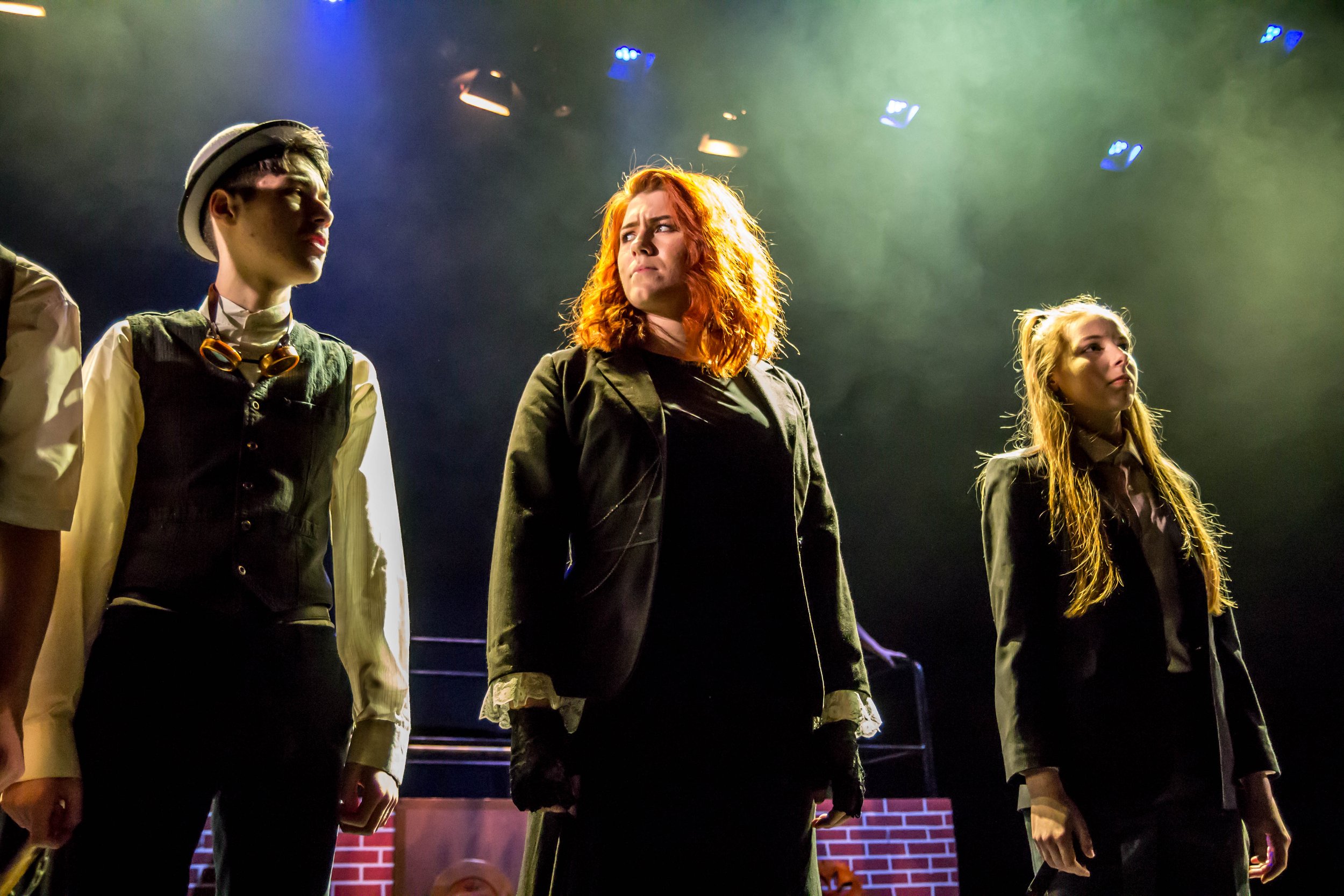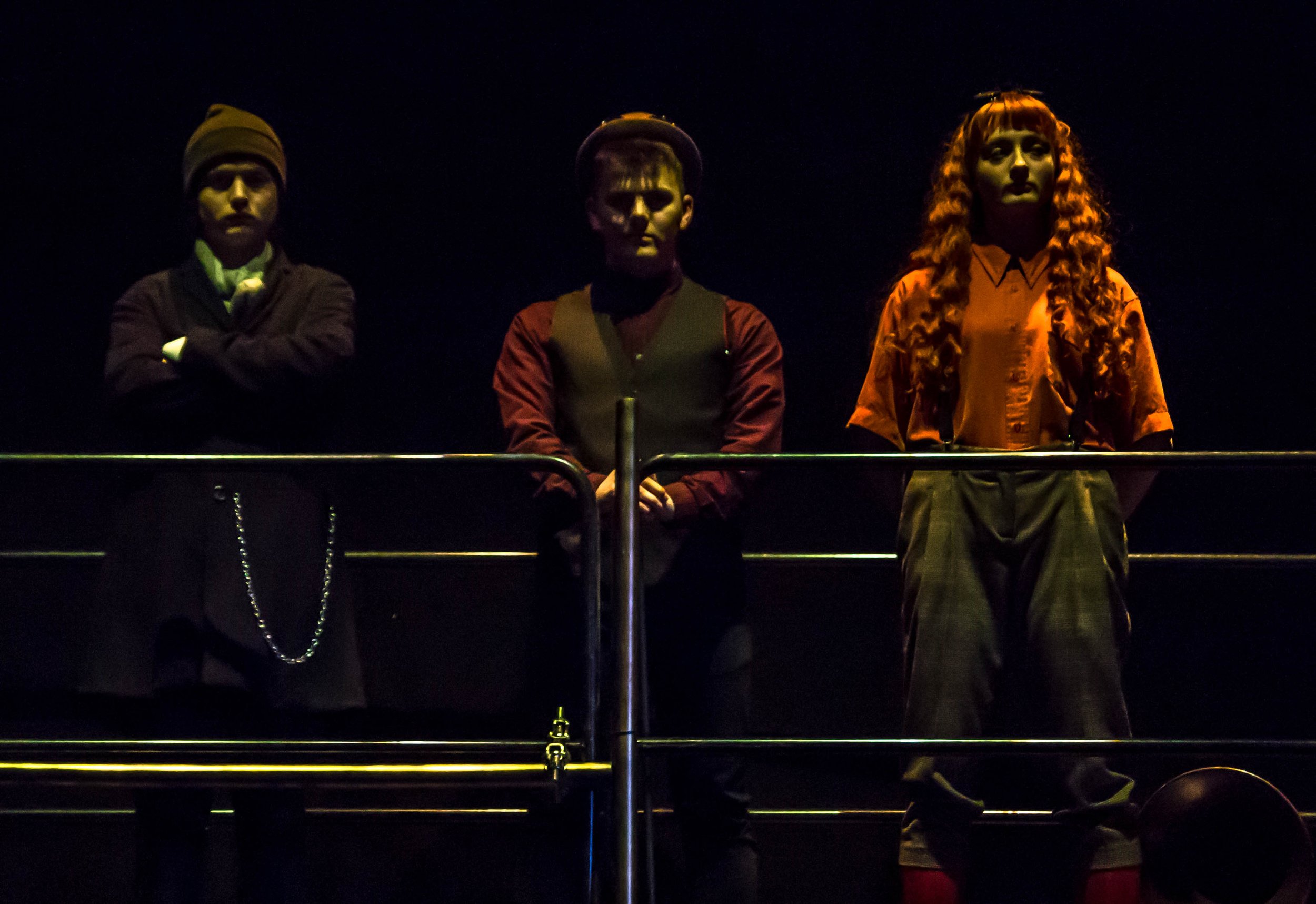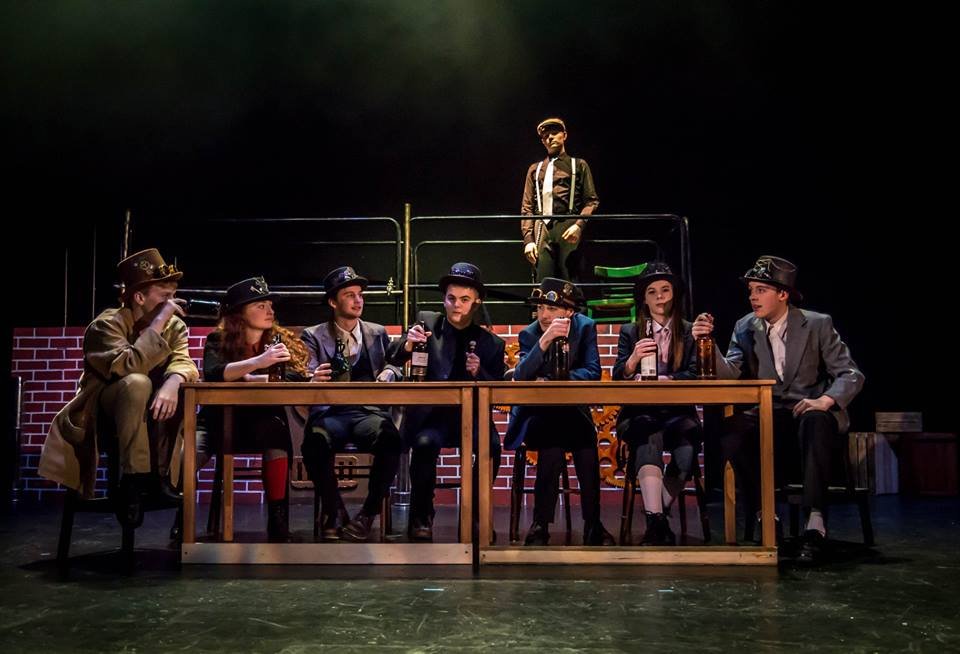
Animal Farm
Animal Farm tells the story of a group of farm animals who rebel against their human farmer, hoping to create a society where the animals can be equal, free, and happy. Ultimately, the rebellion is betrayed, and the farm ends up in a state as bad as it was before, under the dictatorship of a pig named Napoleon.
Production Team
Reviews
-
“Animal Farm” by Spotlight Theatre
Nottingham Arts Theatre
Sick and tired of maltreatment under their enslavement from man, the animals of Manor Farm revolt. Released from all chains, there is but one key rule: All animals are equal. Yet, as the story progresses we soon see some animals are more equal than others…
Orwell uses the turmoil faced on the farm by the animals as a metaphor for the Russian Revolution. It shows how a people's fight for freedom can quickly morph into a power play as chaos ensues.
Orwell plants lies, illiteracy and even a head hunt throughout the play to explain the oppression, propaganda and excuses that led to the rise of the Soviet dictatorship.
It's relatively easy for a film to create the feeling of power and fear, but not so easy in the theatre, but both of these feelings are well portrayed here. It takes a talented group to create such an uneasy feeling over an audience but in the second part of this play, the unease of the power pig, Napoleon was apparent.
Matty Collins (Napoleon) gives a strong performance which is controlled at all times. The danger in his character quite evident as we go through the play.
Even though Boxer, the cart horse is a solid supporter of Napoleon's, even though there's doubt towards the end, he too is sold down the river by Napoleon. Dan Wolff makes his debut for Spotlight in this play and , as all the cast, turns in a solid performance.
Snowball is one from the old school, following the rules of Old Major, but when he comes up against Napoleon and his dogs, he is soon dispensed. Joseph Stafford plays Snowball in this, his first Company show.
Isabella Elliott, as Squealer is Napoleon's right hand pig and helps convince the rest of the farm animals that what Napoleon says is the best way forward. This too is Isabella's debut for Spotlight.
Lottie Martin (Mollie) gets her very own round of applause mid way through the play with an accapella piece which provides one of several poignant parts of this play.
Several of the actors double up the parts but as an ensemble there's not a bad performance to be seen. Charlie Evans, Jack Grace-Buttenshaw, Louis Barnes-Cupit, Stan Cook and Ryan Dickson complete this hard working cast.
Directed by Cassie Hall, and her follow up from the very successful “The History Boys” from last year, she can add this to her growing list of successful pieces of theatre.
What I was unsure of before seeing this play was how were they going to distinguish the animals from each other. Even though there was nothing to do this apart from the power of the spoken word, it showed that you didn't need this classification and the genus of the animal really didn't have any bearing to the story, apart from the setting being a farm.
Why do I say that? Well I'll tell you. The story is such a classic, well written piece of literature that character of the role wins through. This is why sometimes you can have a female play a male character and as long as you get the characteristics right, nothing else matters, so the breed of animal comes second.
This also spotlights the actor's power to make you believe the character they're playing, making you, the audience member, use your imagination of the physicality of the role.
Using your imagination also works as Napoleon's dogs deal with some of the animals in act two!!
Look, this is just flowery speak to say what a brilliantly talented cast they all are and that you need to pop down and get your tickets, if there are any left, and see this absolute classic. Agreed? Agreed!
The novel is a timeless classic which makes it just as relevant in today’s society as it did when first written, proving that this play still has legs, be it two or four!













